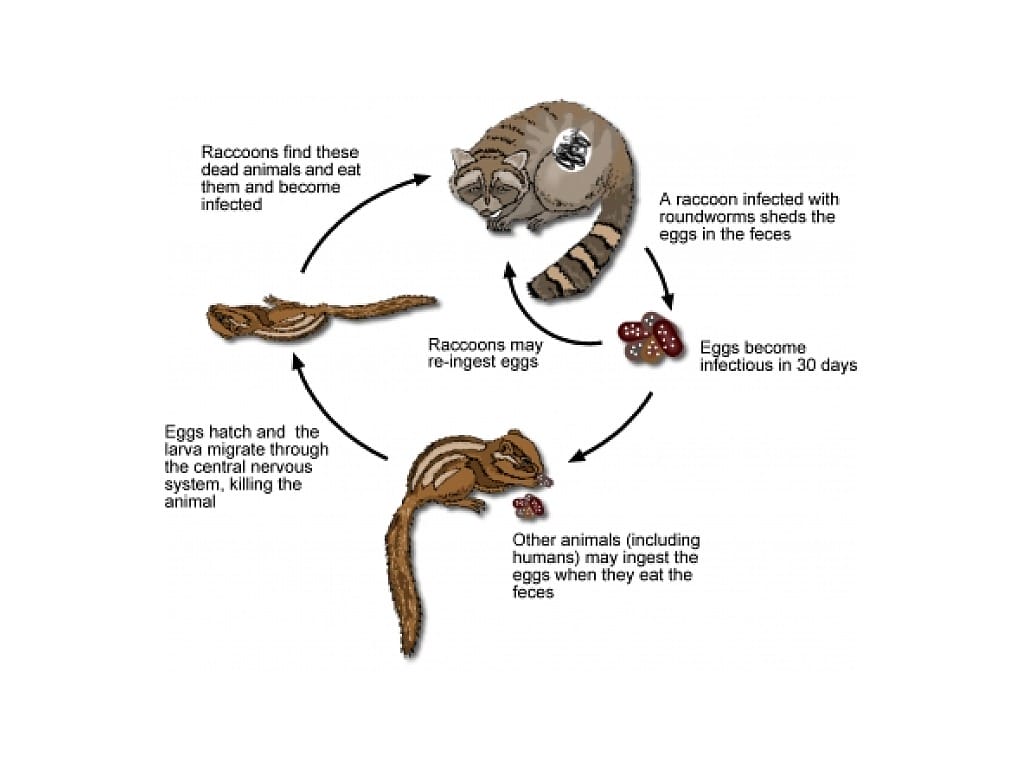Racoons

How to Identify a Raccoon?
Most commonly, raccoons have grayish-brown fur with black highlights around their face and tail.
Raccoons measure about 2-3 feet long from the nose to the tip of the tail.
They have a black mask around their eyes and a striped tail. They have a stocky build with short legs and sharp claws.
Get A Free Quote
We are affordable Pest Control Service in GTA & Surroundings Areas.
What Are Raccoons?
Raccoons are small, nocturnal creatures that live in both urban and suburban communities in Canada. They are known for their adaptability, intelligence, and keen eyes. Raccoons are omnivorous, and their diet includes both plant and animal material. Due to their adaptability, they are challenging to capture.
They invade houses and offices in search of food and shelter during harsh Canadian winters. However, once inside, they cause damage and spread diseases. Understanding raccoon lifespan, characteristics, and habits helps in managing them safely and responsibly.
Physical Characteristics
Raccoons are known for their distinctive physical characteristics. They have a unique appearance, characterized by their black-ringed tails and bandit-like facial markings. Their fur is thick, soft, and grayish-brown in colour, which keeps them warm during the colder months. Raccoons also have sharp claws on their front paws that make them efficient climbers.
Just like humans, raccoons have five fingers on each hand with sharper nails to grab things tightly. Additionally, they possess excellent night vision due to the tapetum lucidum, which enables them to see even in complete darkness.
The body size depends on the raccoon species. For example, urban raccoons are larger because they have access to a greater variety of food. In contrast, rural raccoons are typically smaller due to the limited resources available in raccoons’ natural habitats.
Raccoon Sounds
Raccoon sounds are the first sign of their presence in your home. They make different noises and are more active at night. Due to their incredible vocal cords and teeth, they make 10 different types of sounds. They can Coo, Kik, Wuff, Whinny, Bark, Moo, Chee, Screech, Cackle, and Rattle. If you hear any such noise from your attic or basement, it means you likely have a raccoon problem.
Raccons Behavior
Raccoons are naughty and often get into trash. However, raccoon behavior is not limited to scavenging for food. Studies have shown that they can adapt their behaviour based on their environment. In urban areas, they have learned to cross roads safely and also exhibit social behaviour.
Despite their cute appearance, it is essential to remember that raccoons are still wild and can attack if they feel threatened or cornered. It is necessary to give them space and avoid feeding them.
If they nest in your home, contact wildlife professionals such as Acme Pest Solutions immediately to remove them safely.
Our Guarantee
Acme Pest Solutions is dedicated to providing exceptional pest control services focusing on customer satisfaction. We aim to exceed industry standards by delivering high-quality work. We stand behind our work with a guarantee for each job completed, giving customers peace of mind. We are committed to ensuring seamless and high-quality service and will return to make things right if any issues arise.
Raccoons Lifespan
Knowing raccoon lifespan helps control their infestation. Their lifecycle is different in different areas. They usually give birth between July and early September. A female raccoon can give birth to an average of 5 to 7 baby raccoons.
In Toronto, Ontario, they typically live only 2 to 3 years due to harsh weather, traffic, and other factors. However, in the wild, this lifespan is extended to 5 to 7 years.

Raccoons Diet
Raccoons are opportunistic eaters, and they can eat whatever they find, including fruits, vegetables, small animals, and insects. Moreover, they have a high tolerance for toxins found in certain foods, such as acorns. So, it’s important to note that while raccoons can tolerate certain toxins in their diets, humans should always take caution when handling or consuming any wild animal or plant.
Raccoons Natural Habitat
These creatures are native to North America but have also become adaptable to living in urban areas. Raccoons’ natural habitat is usually near water sources like rivers or streams, where they can easily find food and shelter.
Raccoons prefer to den in hollow trees or abandoned burrows, but they have also made attics, chimneys, and crawl spaces their homes. They are highly adaptive and can survive in warm and tropical climates.
Common Raccoon Species in Ontario
There are almost seven raccoon species and 25 subspecies found on Earth. However, in Ontario, you can find only “Procyon Lotor”, commonly known as “North American Raccoons”. They are highly adaptable and thrive in both rural and urban areas. They carry and transmit parasites, rabies, and other potential diseases. So, it’s crucial to keep your home raccoon-free.
Contact us for free raccoon inspection in Toronto!
Interesting Facts About Raccoons
These are the following some interesting facts that are discussed about raccoons:
High IQ
Do you know that raccoons have high IQ levels? This is something that many people may not be aware of, but it is actually true. They are known for their intelligence and ability to solve complex problems. For example, the average IQ level for a human is around 100. However, the average IQ level for a raccoon is around 150.
Special Paws
Raccoons are excellent climbers. Their paws are specially adapted for this task, and they can use their claws to grip and pull themselves up trees. This is a valuable skill for raccoons, as it allows them to get food and shelter that would be otherwise inaccessible.
Wash Their Food
Before eating, raccoons wash their food. This is a common habit that helps to remove any potential contaminants. Raccoons use their paws to move the water and dirt around the food, making sure that everything is clean before they eat.
Adaptability
Raccoons can live almost anywhere, including in urban areas. Their adaptability makes them great survivors and some of the most adaptable animals on the planet.
Good Sense of Smell
In fact, raccoons can detect smells that are more than a thousand times stronger than human noses! This is why they can find food in difficult-to-reach places. Raccoons also use their noses to find water.
Raccoon Babies
Raccoons have a lot of babies. They reproduce more than other animals and have an average of 5 to 7 baby raccoons. They breed once a year, with a preference for July and early September to give birth.
Carry Diseases and Parasites
Raccoons are the primary carrier of rabies. They can also carry tuberculosis, gastroenteritis, and listeriosis. Rabies is a dangerous virus that can be fatal to humans if contracted. Raccoons can also have other diseases and parasites, including sylvatic plague, Lyme disease, toxoplasmosis, and varroa mites.
Difficult to Capture
They are determined and will not give up easily. If you try to trap them, they’ll likely just move to another part of your yard.
Take precautionary measures to prevent their entry, and if they are already in your home or office. (How to get rid of raccoons naturally). Contact our experts for professional raccoon removal services in Toronto, Milton, Mississauga, Brampton, and Oakville.
Areas We Serve:
We offer raccoon removal services in the following areas:
Frequently Asked Questions (Faqs)
Yes, raccoons are dangerous to humans and pets. They transmit potential diseases and carry parasites. They can cause rabies, leptospirosis, and salmonella.
Yes, they are mammals. Raccoons are related to the family of Procyonidae. They are adaptable, clever, and notorious creatures.
Raccoons are scared of bright lights, sensitive to ammonia-like or garlic-like smells, and loud noises. They are also afraid of natural predators.
